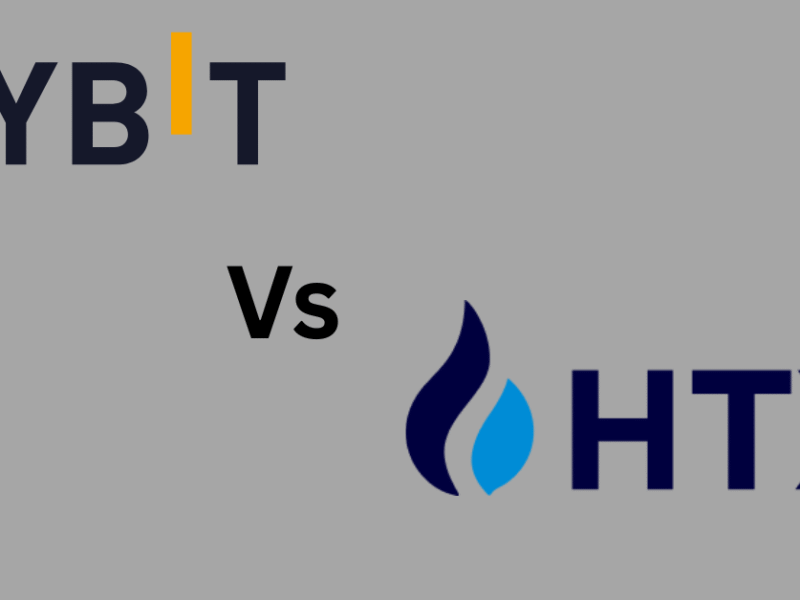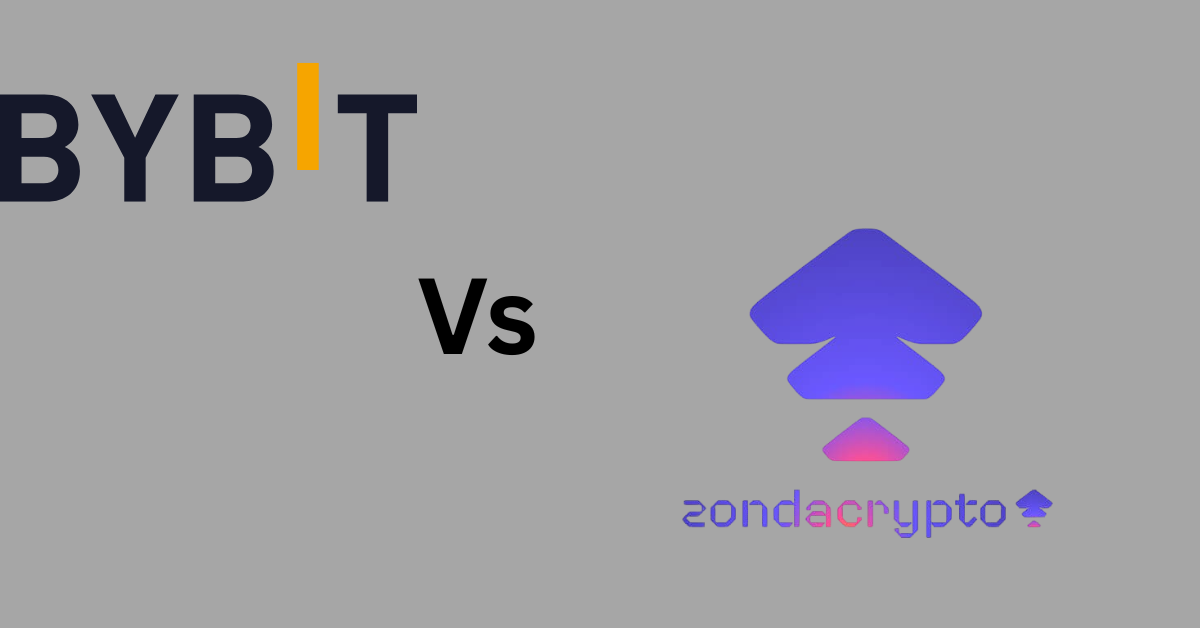The cryptocurrency exchange you choose can shape your trading experience. With hundreds of platforms available, Bybit and Binance stand out as two of the most popular choices for crypto users. But which one is better for your goals? This guide provides a detailed comparison of Bybit vs Binance, helping you understand how they differ in features, fees, usability, and more.
Key Takeaway:
- Bybit offers faster order execution and a simpler, more user-friendly interface ideal for derivatives traders and beginners.
- Binance provides a vast selection of cryptocurrencies and a comprehensive ecosystem including staking, NFTs, and DeFi.
- Bybit focuses on leveraged trading with up to 100x leverage, while Binance supports various trading styles including spot, futures, and margin.
- Binance has lower fees for high-volume traders and extensive global availability, but requires stricter KYC verification.
- Bybit’s copy trading feature and educational resources make it appealing for users seeking guided trading experiences.
- Binance’s deep liquidity and diverse financial products suit users looking for a one-stop crypto platform.
- Regulatory restrictions limit Bybit’s availability in some countries, while Binance faces regulatory scrutiny but remains widely accessible.
Bybit Vs Binance
| Feature | Bybit | Binance |
|---|---|---|
| Founded | 2018 | 2017 |
| Primary Focus | Derivatives and leveraged trading | Spot trading, futures, DeFi, NFTs |
| Number of Supported Coins | Around 100+ | Over 350+ |
| Trading Fees | Competitive, slightly higher for spot | Low fees, discounts available with BNB |
| Leverage | Up to 100x on derivatives | Up to 125x on futures, margin available |
| User Interface | Simple and beginner-friendly | Feature-rich but can be complex |
| Copy Trading | Yes | No |
| Educational Resources | Extensive (Bybit Learn) | Extensive (Binance Academy) |
| Fiat Deposit Options | Bank card payments in supported countries | Multiple fiat options worldwide |
| Mobile App | Yes | Yes |
| Global Availability | Restricted in some countries (e.g., U.S.) | Available in most countries, with some restrictions |
| KYC Requirements | Required but less strict | Strict mandatory KYC |
| Security Features | User Protection Program, cold wallets | Advanced security protocols, SAFU fund |
| Additional Features | Copy trading, derivatives focus | Staking, NFTs, DeFi, Launchpad, BNB Chain |
| Customer Support | 24/7 live chat and help center | 24/7 live chat and comprehensive help center |
| Regulatory Challenges | Limited presence in certain markets | Ongoing regulatory scrutiny worldwide |
Overview of Bybit
Bybit is a global cryptocurrency exchange founded in 2018. It began as a platform for crypto derivatives and has since expanded into spot trading, copy trading, and DeFi services. With a focus on speed, security, and trader-focused tools, Bybit serves millions of users worldwide.
Bybit supports a wide range of digital assets and offers up to 100x leverage for certain products. The platform has a clean interface, mobile apps, and 24/7 support. Its educational portal, Bybit Learn, and helpful onboarding tools make it beginner-friendly, too.
For further help, users can access the Bybit Help Center and view Getting Started resources.
Pros and Cons of Bybit
Pros:
- Low Fees: Competitive trading fees. View the fee structure.
- Leverage Trading: Up to 100x leverage for derivatives.
- Educational Resources: Access free courses via Bybit Learn.
- Copy Trading: Follow experienced traders with one click.
- Security: Offers a User Protection Program.
- Fast Transactions: Known for fast order execution and minimal downtime.
- Card Payments: Supported in several countries. See the list of regions.
Cons:
- Not Available Everywhere: Restricted in countries like the U.S. and Canada. View Bybit Announcements.
- Advanced Tools May Overwhelm Beginners: Though beginner-friendly resources exist, advanced trading features may be complex for new users.
Overview of Binance
Binance is the largest cryptocurrency exchange in the world by trading volume. Founded in 2017, Binance offers a full ecosystem that includes spot and margin trading, futures, staking, launchpads, and an NFT marketplace.
The platform supports hundreds of cryptocurrencies and has global reach, serving users in over 180 countries. Binance offers several educational resources, tools for institutions, and even its own blockchain—BNB Chain.
To get support, visit the Binance Support Center. You can also find detailed info about fees via the Binance Fee Schedule.
Pros and Cons of Binance
Pros:
- Massive Coin Selection: Supports hundreds of crypto assets.
- High Liquidity: Fast trades, even at high volumes.
- Low Trading Fees: See the full schedule.
- Ecosystem Depth: Offers DeFi, staking, NFT trading, and more.
- Global Availability: Binance supports users in most countries. Check the regional availability.
- Robust Support: Extensive documentation via the Binance Help Center.
Cons:
- KYC Is Mandatory: Binance requires full verification for nearly all services.
- Interface May Be Complex: The platform’s depth can overwhelm new users.
- Occasional Regulatory Issues: Binance has faced scrutiny in several countries. Keep up with updates on the Binance Blog.
Conclusion
Both Bybit and Binance offer excellent trading services, but they cater to slightly different users.
Choose Bybit if you want a platform focused on speed, derivatives trading, and copy trading. It’s especially good for users who want a simple interface with advanced tools. Bybit’s User Protection Program and educational content make it a reliable choice for active traders.
Choose Binance if you want access to hundreds of cryptocurrencies and an expansive ecosystem that includes staking, DeFi, and NFTs. Its global presence and high liquidity make it the top choice for traders looking for everything in one place.
Key Takeaways: Why Bybit Might Be a Better Choice Than Binance
- Faster and simpler onboarding for traders who want to start quickly
- Copy trading lets users follow top traders easily
- Clean interface that is less cluttered than Binance’s dashboard
- Lower learning curve for users who prefer fewer distractions
- Focused product offering with strong derivatives and leverage options
FAQs: Bybit vs Binance
What is the main difference between Bybit and Binance?
Bybit is tailored for derivatives and advanced trading, while Binance offers a more expansive crypto ecosystem, including DeFi, staking, and NFTs.
Which exchange has lower trading fees?
Both offer low fees, but Binance’s fees are slightly lower for VIPs and BNB holders. Compare Bybit fees and Binance fees for accuracy.
Is Bybit easier to use than Binance?
Yes. Bybit has a cleaner interface and fewer features to distract new users, making it more approachable.
Which platform has more coins?
Binance supports over 350 cryptocurrencies, far more than Bybit. This makes Binance a better option for altcoin traders.
Can I trade with leverage on both platforms?
Yes. Bybit offers up to 100x leverage. Binance also supports leveraged products including futures and margin trading.
Is KYC required on Bybit and Binance?
KYC is required on both, but Binance enforces it more strictly across all features.
Which exchange is better for U.S. users?
Neither Bybit nor Binance Global supports U.S. residents. Binance.US is a limited version but does not offer all features.
Does Bybit offer copy trading?
Yes. Bybit lets users follow experienced traders. Binance does not have this feature.
Can I earn passive income on either platform?
Yes. Binance offers more options like staking and launchpool. Bybit also offers staking and savings.
Which platform is more secure?
Both have strong security, cold wallets, and user protections. Bybit also has a User Protection Program.
Is Binance better than Coinbase or MEXC?
It depends. See comparisons:
Which platform has better customer support?
Both have 24/7 support. Binance’s Help Center is extensive. Bybit’s Help Center also offers fast ticketing.
Which is better for mobile trading?
Both offer advanced mobile apps with trading, tracking, and wallet features.
Can I deposit fiat currency?
Yes. Both allow fiat deposits via bank transfers and cards in many regions.
Does Binance have a better reputation than Bybit?
Binance is more well-known globally due to its size. However, Bybit is growing fast and is well-reviewed for trading tools. See our Bybit Review.
Which is better for advanced traders?
Bybit provides better derivatives-focused features and faster execution. Binance is better if you want a broader trading experience.
Are minors allowed on either platform?
No. But if you’re under 18, you can explore crypto apps for minors.
Can I use a card to buy crypto?
Yes. Both support credit/debit card payments in supported regions.
Which platform is faster?
Bybit is known for speed and reliability during peak trading hours.
Which exchange should I choose?
Choose Bybit for speed, simplicity, and derivatives. Choose Binance for more coins, DeFi, and long-term investing options.





